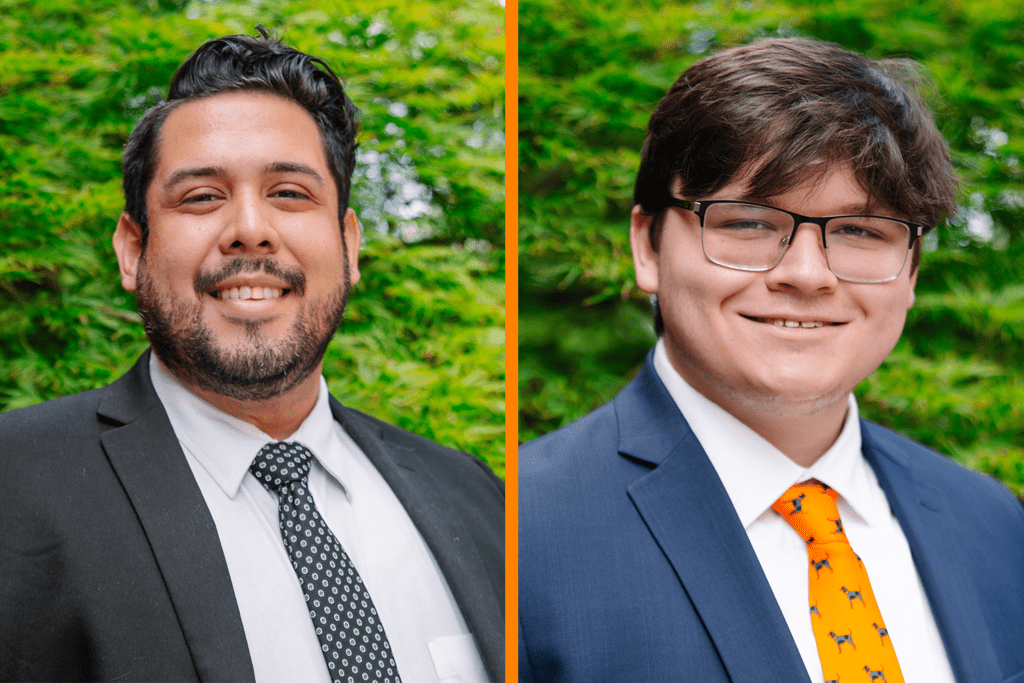This fall, third-year students Danny Mendoza and Cade Williams were the first College of Law Legal Clinic students at the University of Tennessee to take cases before the Copyright Claims Board (CCB), helping clients resolve disputes over copyright infringement claims. Brian Krumm, associate professor of law, saw the CCB as a unique opportunity for transactional law students.
“Preparing for CCB hearings would offer students a deeper understanding of the copyright law and enhance their advocacy skills as they present a case before a three-judge panel that reviews each claim,” he explained.
In 2022, Congress established the CCB to offer a streamlined process for copyright-related claims that seek damages of up to $30,000. For individuals and small businesses with limited means who might be priced-out of litigating a federal lawsuit, the CCB’s online, video-conference-based hearings offer a cost-effective, less complex alternative to traditional litigation. The CCB’s procedural rules were designed to be straightforward, eliminating the complexity and time delay in federal court filings.
As Krumm began to develop the curriculum to integrate copyright cases before the CCB into his students’ caseloads, he selected Mendoza and Williams to represent the clinic’s first clients.
“During their clinic semester, Danny and Cade developed excellent rapport with their clients and their work product was stellar. After their semester ended, they wanted more experience with intellectual property disputes, making them the perfect choice to help clients protect their original work in CCB disputes,” said Krumm.
This semester, as advanced students, Mendoza and Williams got that chance. They represented clients on both sides, filing copyright claims and defending them. To prepare their cases, they developed relationships with their clients, worked on case strategy, drafted legal arguments, responded to discovery requests, addressed counterclaims, and prepared for their hearings.
“For one of my clients, we recently had a discovery conference to move the case forward,” said Mendoza, “For another client, I helped assess a claim brought against them and developed a strategy to address the potential merit of the case, providing legal advice on whether to challenge or settle the dispute.”
At each step of the process, claims before the CCB show students how the complexity of copyright law plays out in real cases as they advocate for their clients in protecting their intellectual property.
“As the CCB continues to grow and evolve, clients and students stand to benefit from its efficient, affordable, and accessible approach to copyright dispute resolution,” said Krumm.
